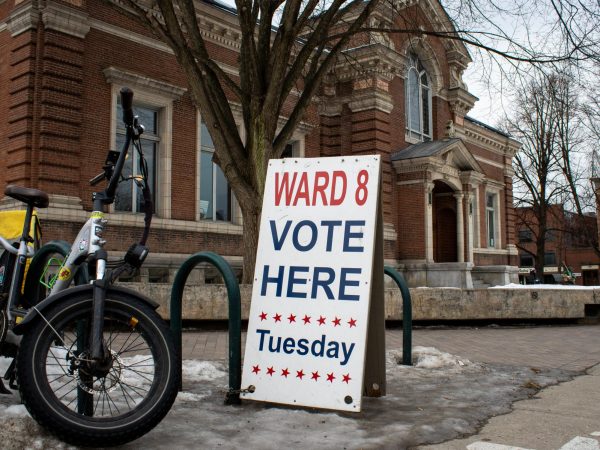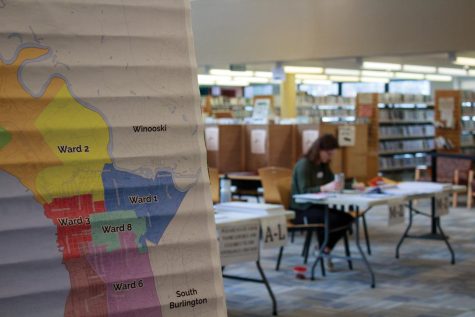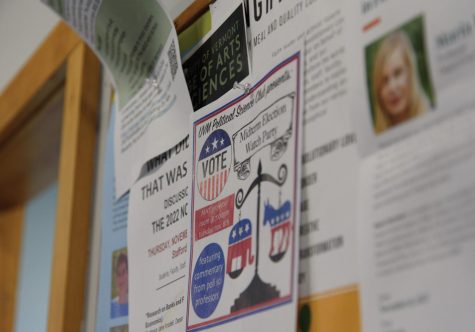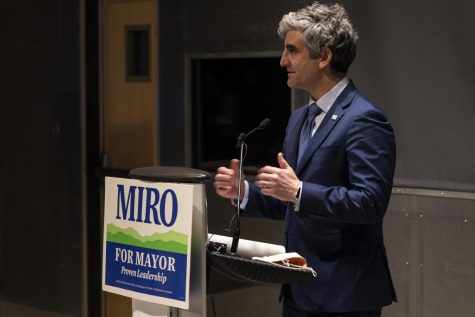Trump’s actions against EPA may affect UVM environmental programs
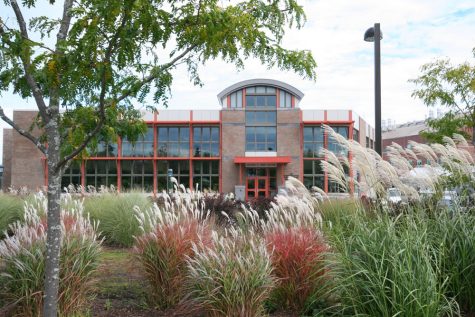
Photo courtesy of UVM
While an environmental science major, Taylor Smith ‘16 spent the majority of his final semester at UVM planting 500 trees to revive the former grounds of Burlington College.
Smith now works as an environmental scientist for a Massachusetts engineering company, working on a contract with the U.S. Environmental Protection Agency.
Shortly after President Donald Trump’s inauguration, Smith received an email that stated information would not be released by the EPA until further notice, he said.
“They sent out a mass email and said if you are working on an EPA contract, stop doing that,” Smith said. “No one really knew what was happening.”
He was later told that current contracts were not affected, but no new contracts with the EPA would be issued, Smith said.
The freeze on grants and contracts was lifted Jan. 27, though the EPA is not yet able to post on social media, update blogs or issue press releases, according to a Jan. 25 New York Times article.
UVM receives money from the EPA to fund various environmental projects that allow students to pursue research, among other things, said Nancy Mathews, dean of the Rubenstein School of Environment and Natural Resources.
Since the day of the inauguration, information on future funding has changed often, Mathews said.
It is unclear what the state of current and future projects will look like, she said.
“It has yet to be seen whether funding decisions made prior to the transition will be honored,” Mathews said.
UVM and the EPA
UVM’s School of Natural Resources was established in 1973.
Following an alumni donation in 2003, the school was renamed the Rubenstein School, according to its website.
The school has been housed in the Aiken Center since 1982, and there are around 4,000 active alumni, the website states.
UVM’s funding from the EPA varies from year to year, said Richard Galbraith, vice president for research.
For example, the University received $131,000 in 2014, but only $52,000 in 2011, Galbraith said.
The Aiken Center renovation was the largest project at UVM that received funding from the EPA.
The project, completed in 2012, was supported with a $900,000 grant from the agency, according to University Communications.
The project’s total cost was $13 million.
Environmental programs at UVM receive federal funding from other federal organizations in addition to the EPA, Mathews said.
The future of environmental funding
Sophomore Mike Perrin, a Rubenstein student, said reductions in federal environmental funding will make it difficult for graduates to secure federal jobs.
“With less attention focused on restoration and protection of the natural areas in the U.S., many other students and I are losing job opportunities, secure livelihoods for the future, protection for the earth we love and finally, our patience,” Perrin said.
It will also belittle the education and work of countless students, scientists and environmentalists, he said.
Decreased federal role in environmental policy will leave states in charge of funding decisions, Dean Mathews said.
“The state does not have funding to compensate for the loss of federal funding from these agencies,” she said.
In 2016, the state of Vermont contributed about $2.5 million, or 1.75 percent of funding, according to the UVM Sponsored Project Administration funding report.
Programs prepare for change
As the University prepares for change, Deborah Markowitz, secretary of the Vermont Agency of Natural Resources, will be a visiting professor in the Rubenstein School this semester, Mathews said.
Markowitz will be leading efforts to understand the impact of the Trump administration’s actions on environmental quality, Mathews said.
States and the EPA are responsible for implementing environmental policy, Markowitz said.
“If the EPA would no longer collect data that is important to our programs,” she said. “If the EPA no longer funded our environmental programs or investments, then Vermonters would lose out.”
Nearly one-third of the scientific and program staff at Vermont’s Department of Environmental Conservation are paid for with grants from the EPA, Markowitz said.
In November, Trump nominated Myron Ebell, director of environmental and energy policy at the Competitive Enterprise Institute, to lead the EPA.
Ebell has been called a “climate contrarian” by PBS and the New York Times, among others.
CEI is partially funded by companies in the fossil fuel industry.
Ebell has been a vocal opponent of the Clean Power Plan, developed by the EPA, according to a Nov. 11 New York Times article.
On Monday, Ebell said the U.S. will be pulling out of the Paris Climate Agreement and “clearly” changing course on its environmental policy, according to Reuters.
Robert Bartlett, chair of UVM’s political science department, spoke at a panel Monday moderated by former Vermont Gov. Madeleine Kunin, where Bartlett said it is common for new presidents to reverse the policies of their predecessor.
Actions taken against the environment are not as easily reversible because the global climate crisis might be more concerning down the road, he said.
“It’s certainly possible that all of President Trump’s actions on climate could be reversed four years from now, but nevertheless the problem could be much worse by then,” he said.
Senior Daniel Horne, a wildlife biology major, said the Trump administration is placing importance on the wrong issues.
“We are in such a crucial time right now when working to curb climate change absolutely needs to be a priority,” Horne said. “Instead, we’re seeing this blatant refutation of replicated scientific results.
“It’s frightening,” he said.
Any changes in federal environmental policy will not affect the work of UVM researchers, Mathews said.
“The research priorities of our faculty are not likely to be impacted by the change in the current federal priorities,” she said, “given their unwavering commitment to the use of science, evidence and data to help our policy makers formulate strong environmental policies and regulations.”
First-year Ryan Buckley, an environmental science major, said Americans need to be taught about the opportunities provided by green energy and environmental protection.
“The environment is a partisan issue, which is such a problem,” Buckley said. “Restricting the EPA is a massive risk.”

Bryan is the managing editor of the Vermont Cynic and has been involved since Jan. 2015. Prior to his position as managing editor, he was a news writer...







